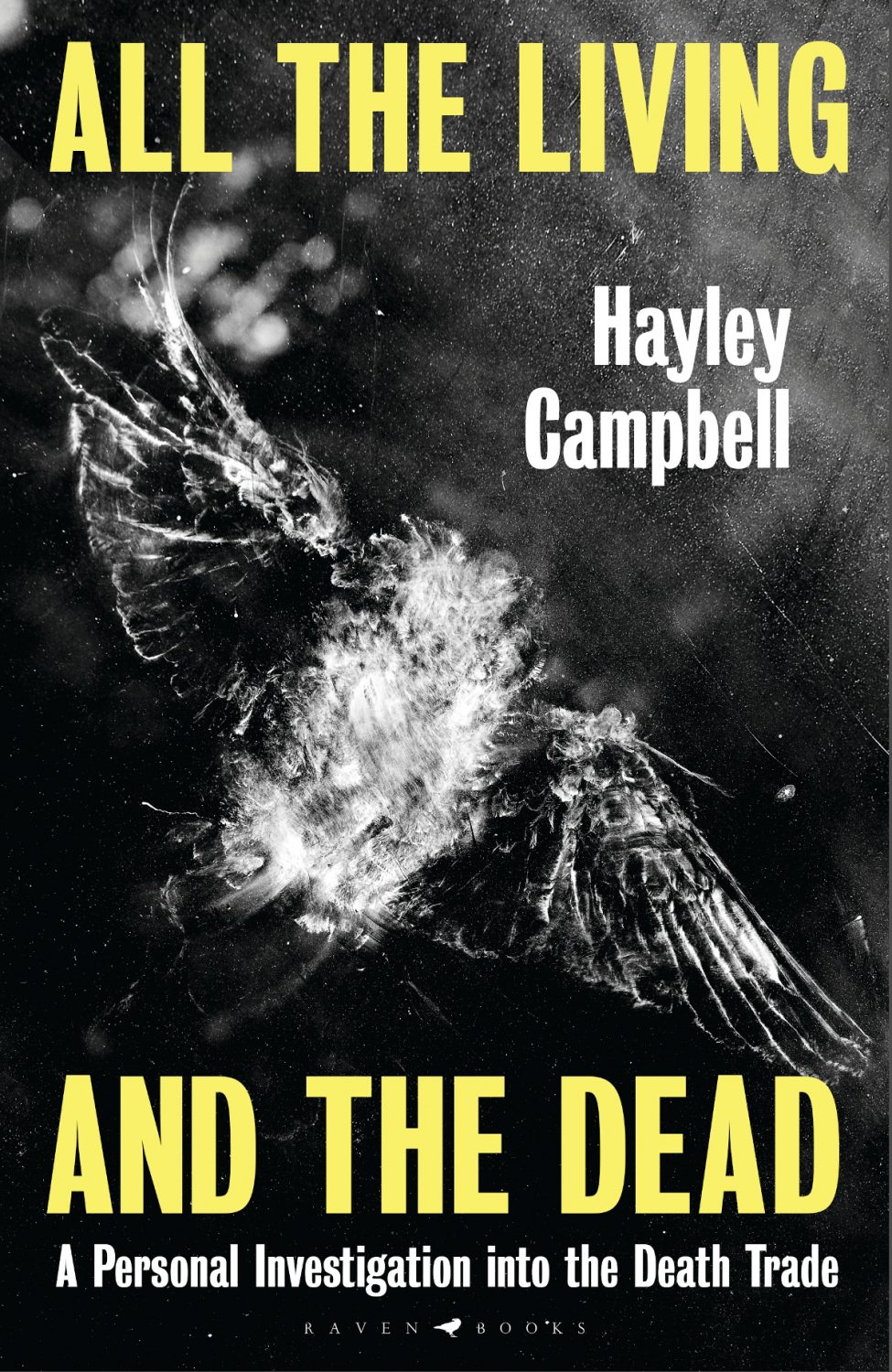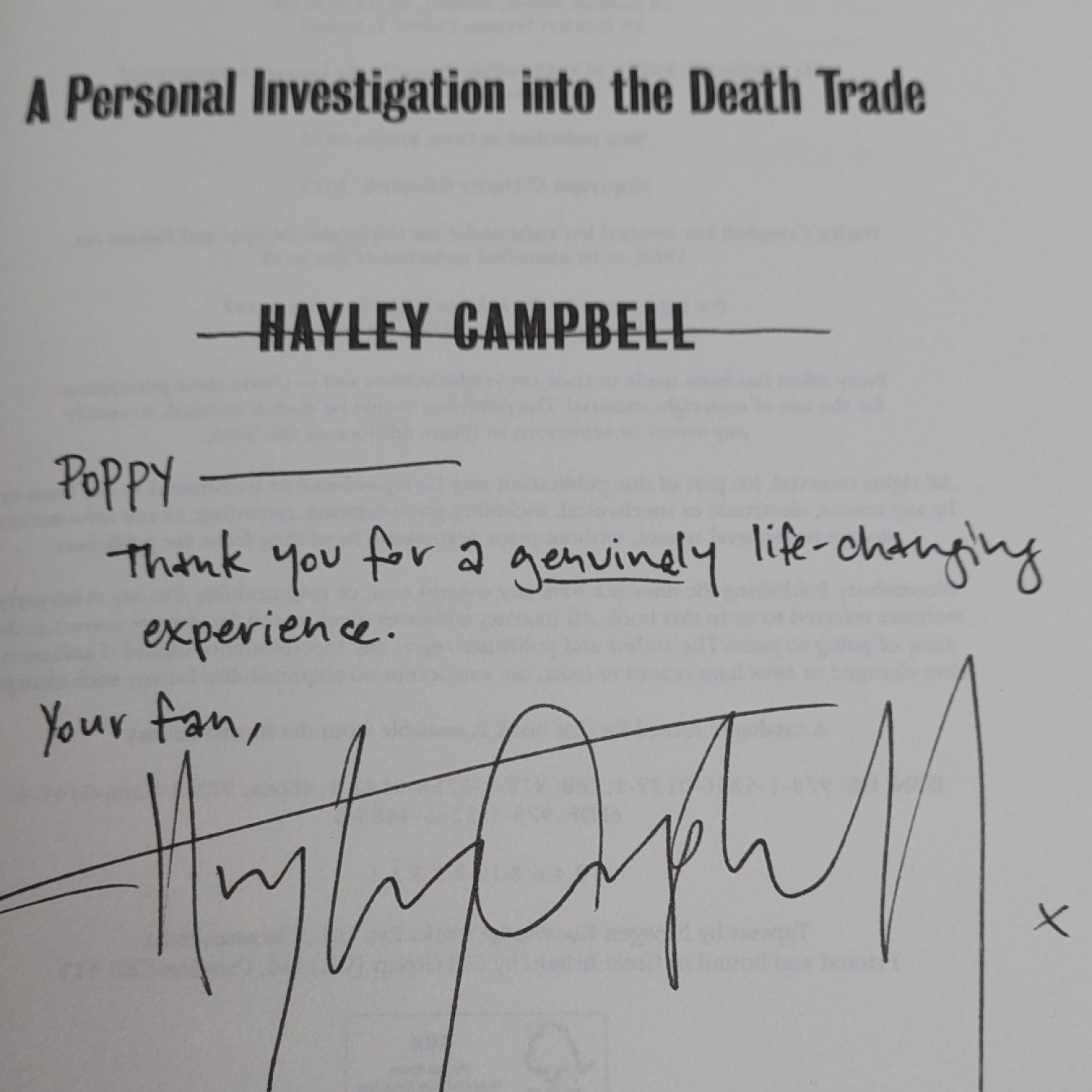Four minute read
Hayley Campbell has spent the last three years talking, thinking and writing about death. She has interviewed a gravedigger, a pathologist, a bereavement midwife, even an executioner.
Their words and experiences, and those of eight other people who work closely with the dead, form the basis of her powerful and personal new book, ‘All the Living and the Dead’. But her first interview was with Poppy. We asked her why she started there.
“I had always wanted to talk to a funeral director. I found Poppy by accident. Without Poppy, this would have been a very different book. She changed the whole tone. It was life-changing for me.”
They first met at an event in London. “When Poppy stood up and said, ‘the first dead body that you see shouldn’t be someone you love’, I knew I needed to talk to her.”
To Hayley’s surprise, Poppy followed up their conversation with an invitation to come and visit our mortuary and to help dress someone who had died, ready for their funeral.
Hayley writes about how her expectations were shattered by the visit: “I had predicted an assault of fluorescent strip lights that buzz and blink, not a place bathed in warm, spring sunshine making everything glitter [...] it is practical, unpretentious, welcoming.”
Snapshots and smells
‘All the Living and the Dead’ is a book which evokes all the senses. You can hear, see, even smell, each place that Hayley visits.
“So many smells!” laughs Hayley in agreement. “And not all of them bad — the mortuary smelt of pine and of daffodils. I didn’t want to sit in a room by myself and write an overview of how we see death.
"Not only is that impossible, because every funeral director is different, but it doesn’t bring the reader in on an emotional level. Instead, I wanted to share snapshots of what I’d seen.”
But these are more than snapshots. Each interview is hard won. Building trust and rapport, so that you can really get to the heart of why someone does what they do, takes time. It can’t be rushed.
Unseen acts of care
“Each time I interviewed someone, I kept on poking,” says Hayley. “And, without fail, the thing that people always told me as an afterthought, was something special. It was something that provided a spark of hope.”
For example, one of her interviewees used to work as an undertaker: “Families would bring clothes for him to dress their dead relative, but forget socks or underpants,” she explains. “So he would always have spare underwear ready. It wasn’t in his job description, no one would notice if he didn’t do it, but he felt wrong burying people with no underwear.”
Each unseen act of care was specific to that person’s job. She found crematorium workers who, when no one came to a funeral, attended themselves, or a gravedigger who specially chose softer soil from molehills to make it easier to scatter into the grave. “They didn’t see these actions as important. I thought they were huge,” Hayley says.
Personal impact
The subtitle of the book is ‘a personal investigation into the death trade’. It’s impossible to research this area in such depth without being personally affected yourself.
“Going through the curtain and seeing what happens behind is a massive privilege. As a journalist, you can ask questions that other people can’t or don’t,” explains Hayley.
“It wasn’t supposed to be so personal, but it got personal. I got more involved than I thought I would. I have never been affected by an interview as much as the one I did with the bereavement midwife. But I am glad for everything that I went and saw. I would never take it back.”
Personal experience is precisely what makes this book so powerful. It’s a raw, hard read at times, but always captivating because he author is so involved in her subject. Perhaps strangely, for a book about death, it is vivid and detailed and humming with life.
Like Poppy’s, Hayley would love to see more people talk openly about death and hopes that her book can be a catalyst for these conversations.
“I hope this book doesn’t just reach death professionals or people interested in death. There are so many lessons here, not from me, but from the people I spoke to.”
Towards the end of ‘All the Living and the Dead’, she sums up beautifully some of the lessons that she learnt from the process of researching and writing:
“Death shows us what is buried in the living. By shielding ourselves from the moment of death we deny ourselves a deeper understanding of who we truly are [...] These unseen acts of care, the tender mercies of these death workers, show not a cold detachment from their work, but the opposite — some kind of love.”
Order ‘All the Living and the Dead’
Read more interviews: What it’s really like working in a mortuary and Why I chose to donate my husband’s organs after his death.
To stay in touch with all the latest news and updates from Poppy's by email, sign up here or contact us if you need help planning a funeral.


